Search Results
Showing results 1 to 20 of 35
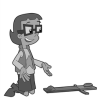
Lifting with Levers!
Source Institutions
In this fun hands-on activity learners explore a simple machine: the lever. What happens to a load when you multiply the length of a lever? Find out here!
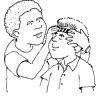
Vital Signs
Source Institutions
This activity (on pages 16-23) lets learners measure each other's vital signs—the signs that help doctors understand what's going on in a patient body.
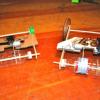
Bottle Cars
Source Institutions
In this activity, learners explore motion, energy, and electricity by constructing bottle cars that run on motors.
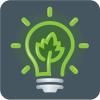
Making Connections: What You Can Do To Help Stop Global Climate Change
Source Institutions
In this cooperative learning activity, learners visit ten stations and are challenged to think critically about various conservation questions and issues.
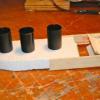
Paddle Boat
Source Institutions
In this activity, learners build an old-fashioned paddle boat out of simple materials.
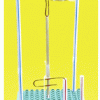
A Simple Escapement Mechanism
Source Institutions
In this activity, learners build a simple mechanism that regulates the "escape" of energy released by a falling weight by portioning it into discrete amounts.

Where Does the Wind Blow?
Source Institutions
In this activity, learners investigate wind by comparing the force of wind in different locations. Learners build wind-o-meters out of wooden sticks and strips of paper.

The Carbon Cycle: How It Works
Source Institutions
In this game, learners walk through an imaginary Carbon Cycle and explore the ways in which carbon is stored in reservoirs and the processes that transport the carbon atom from one location to another
Investigating Convection
Source Institutions
This experiment is designed to illustrate how fluids, including water, have the ability to flow.

Energy Use in the Americas
Source Institutions
Learners explore the relationship between energy consumption, population, and carbon emissions in the countries of the Americas.
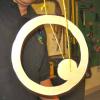
Bouncing Yo-Yo
Source Institutions
In this activity, learners build unique yo-yos, which spin round and round without moving up and down.

Thermal Energy Put to Work
Source Institutions
In this activity, learners determine whether thermal energy can be used for work.
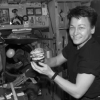
Servings and Choices
Source Institutions
In this nutrition activity (page 16 of PDF), learners document their individual eating habits and learn whether their eating patterns meet their needs.
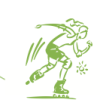
Your Energy Needs
Source Institutions
In this activity about the relationship between food and energy (page 8 of PDF), learners estimate average daily baseline energy (Calorie) needs and energy needs for different levels of activity.
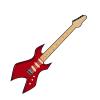
Energetic Musical Instruments
Source Institutions
Learners design and create musical instruments from common objects; their challenge is to create an instrument that can make three different tones.
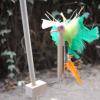
Woodpecker
Source Institutions
In this activity, learners construct a traditional handicraft toy that illustrates a motion commonly associated with violins and earthquakes.
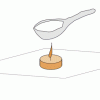
Finding the Carbon in Sugar
Source Institutions
In this activity about combustion and energy, learners observe a burning candle in a sealed jar and the burning of white sugar.
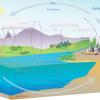
The Carbon Cycle and its Role in Climate Change: Activity 1
Source Institutions
In this activity (on page 1), learners role play as atoms to explore how atoms can be rearranged to make different materials.
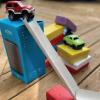
Ramp it Up
Source Institutions
In this activity, learners will build ramps and test how the laws of physics apply do different objects. Learners will explore physics and cause and effect through this activity.
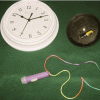
Can Energy be Created or Destroyed?
Source Institutions
In this activity, learners explore conservation of energy by experimenting with a solar cell light device.
